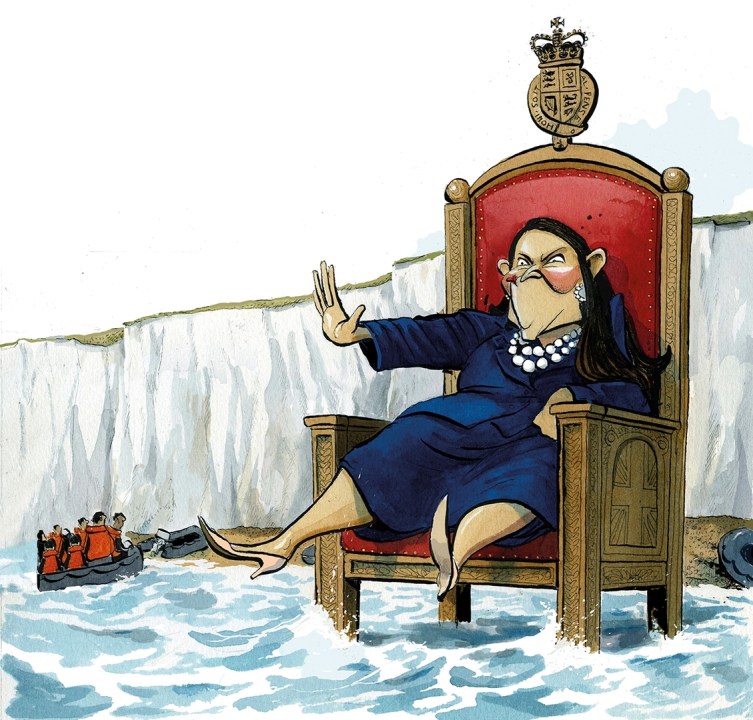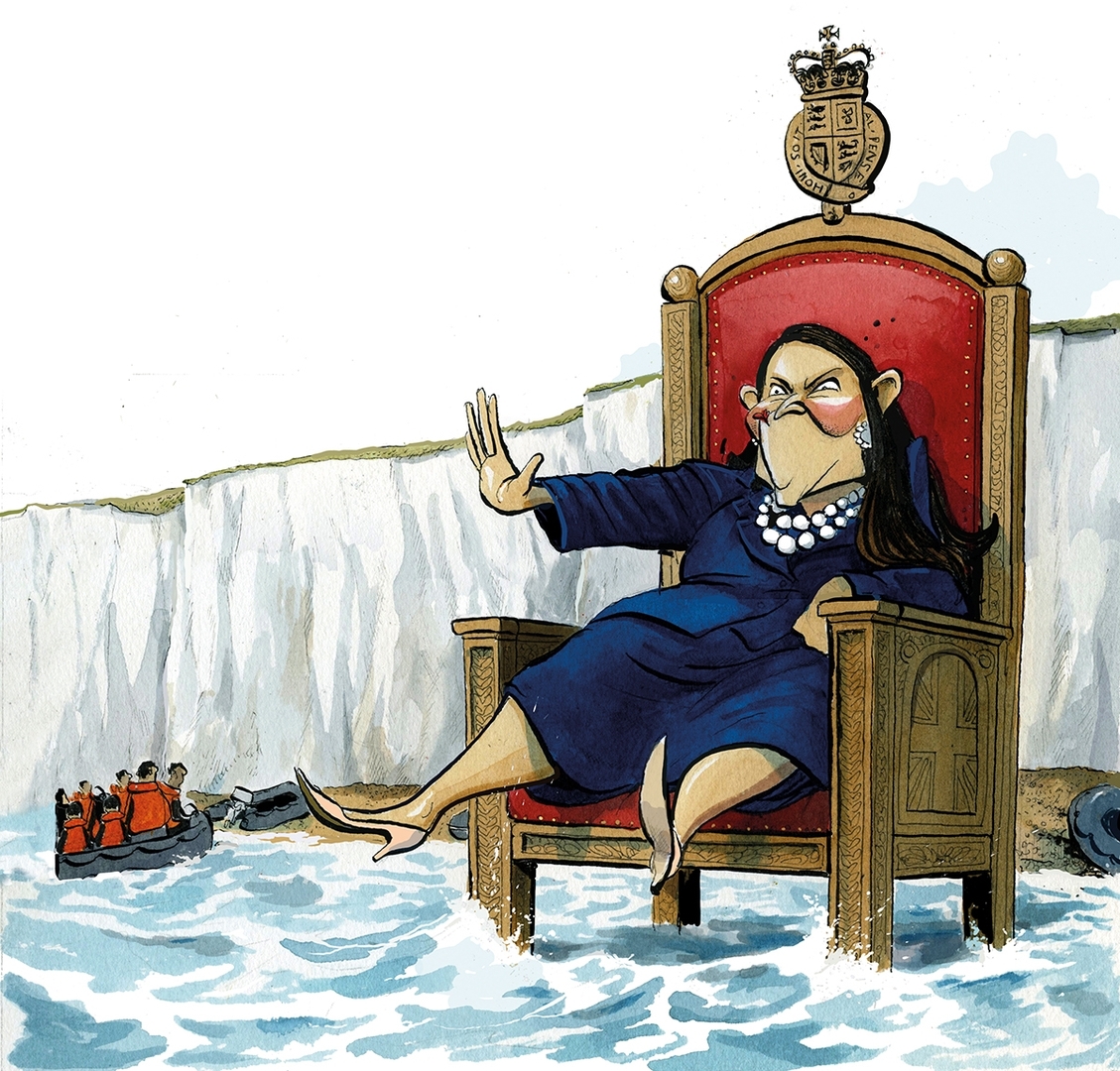It is somehow fitting that during an Olympic Games a department of Her Majesty’s government is busy smashing records.
In the very week that a man ran the 400 metre hurdles at the Tokyo Olympics in a previously unthinkable time of sub-46 seconds, the Home Office presided over the arrival of 482 irregular migrants on the south coast of England in a single day. That easily broke a previous record of 430, set on 19 July or ‘freedom day’. Startled observers of the cross-Channel chaos are now pondering whether the 500 barrier could even be exceeded one day this summer.
That the Norwegian hurdler Karsten Warholm’s record represented astounding success, while the Home Office’s amounts to shocking failure is by the by. Because clearly, it’s the taking part that counts.
In a classic example of displacement activity, Home Secretary Priti Patel was this week away on a fact-finding mission in Greece. She was purportedly picking up new tips about how the administration there has curtailed the flow of small boats full of irregular migrants from Turkey. My advice would be to beware of Greeks bearing skiffs.
There is a solution, but it is one Johnson has thus far proved too squeamish to embrace
Because nudging boats back towards the Turkish mainland over much shorter distances and in much quieter waters is a very different matter from seeking to do so towards the coast of France in one of the world’s busiest shipping channels.
Ms Patel has lately found herself among a long line of scapegoats being blamed for a catastrophic failure of public policy, along with the social media platform TikTok (for allowing videos to be shared by happy landers), France and the RNLI.
As Home Secretary, she is clearly more than an incidental by-stander and has been guilty time and again of indulging in that most short-sighted of political practices: over-promising. But she isn’t the leader of the government.
It was Boris Johnson, after all, who stared down the barrel of a camera after becoming PM in the summer of 2019 and promised to stop the traffic, not only by working in partnership with the French government, but also via a ruthless approach to deportations. ‘We will send you back,’ he pledged.
So how has that been going? The Home Office’s own website is almost comically frank on the matter, admitting: ‘In the year ending June 2020, enforced returns from the UK decreased to 5,304, 34 per cent lower than the previous year and the lowest number since records began in 2004.’
In case you might think that irregular migrants have been going home under their own steam, the Home Office can put you straight on that too, noting about so-called voluntary returns: ‘The numbers recorded have shown a downward trend since 2015’. The final category of deportation is ‘refused entry at port and subsequently departed’. This also dropped sharply in the year ending June 2020, compared to the year before.
What is the PM planning to do about this disaster? Surely not even the most boneheaded of his backbenchers can think that engaging in a new round of blaming France will suffice. Even immigration minister Chris Philp has appeared to admit that the French authorities cannot really do much more to prevent boats setting off, acknowledging while on a recent visit to France: ‘Seeing the vastness of coastline now being exploited by organised gangs shows the scale of the problem facing the French.’
In fact there is a solution, but it is one Johnson has thus far proved too squeamish to embrace. Ms Patel, backed by Dominic Cummings when he was still working in Downing Street, pushed to move to offshore processing of irregular migrants in a bid to drastically reduce the ‘pull factor’ motivating the crossings. Indeed, there is vague provision for this in her new Nationality and Borders Bill.
The idea would be to secure an agreement with an overseas territory, possibly an African state or a UK dependency, to host a large processing facility for irregular migrants who had applied for asylum in the UK. The facility could even be funded from the UK aid budget. Because asylum applicants would be taken directly to the facility as soon as they set foot on the UK mainland, there would be much less chance of them ending up with the right to reside in Britain. This in turn would drastically reduce the number of people prepared to pay £5,000 a pop to the human traffickers running the cross-Channel boats.
But since the departure of Mr Cummings there has been no sign of any prime ministerial urgency to come up with a concrete scheme. The former adviser has said that Johnson has deliberately opted instead to indulge in gimmicks and spin that won’t solve the problem.
No doubt if offshore processing were to go ahead the British left would kick up the mother of all stinks, claiming that the new facility constituted a British Guantanamo. But, as Douglas Murray noted in last week’s Spectator magazine, such a policy was key to Australia getting on top of a spate of boat-borne irregular migration a decade ago.
If the policy does not get the Boris thumbs-up then prepare for more summers ahead of new records for migrant landings and public confidence in Britain’s asylum system plummeting further still. In such circumstances, Ms Patel, or her successor, would have the unenviable task of coming up with one gimmick after another to camouflage a basic failure of political will by the PM. He ought not to be permitted to get away with that.








Comments